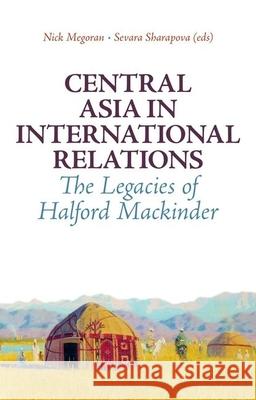Central Asia in International Relations: The Legacies of Halford Mackinder » książka
Central Asia in International Relations: The Legacies of Halford Mackinder
ISBN-13: 9780199327973 / Angielski / Twarda / 2013 / 256 str.
The republics of Central Asia re-emerged as independent actors in the global interstate system in the wake of the collapse of the Soviet Union, their varied histories and geographies offering many different possible opportunities and course of action. In order to explain their often confusing and complicated foreign policy alignments, many analysts have turned again to the theories of Sir Halford Mackinder (1861-1947), the British geographer who is widely regarded as the founding father of geopolitics. This book brings together historical geographers and political scientists to explore this remarkable renaissance of Mackinder's thinking. It charts his own engagement with the region, in both his writings and his visit to Central Asia as a British envoy in the aftermath of World War I. It outlines and evaluates how his ideas have been used by Central Asian, Russian, and American scholars to explain the region's international relations, and it traces how his writings actually reached Central Asia and the manner in which they have been dynamically reworked by scholars 'in transit'. The book is thus an important contribution not only to theorising the international relations of Central Asia, but also to our understanding of the historical geography of how ideas are ex- changed and reworked in the process.











